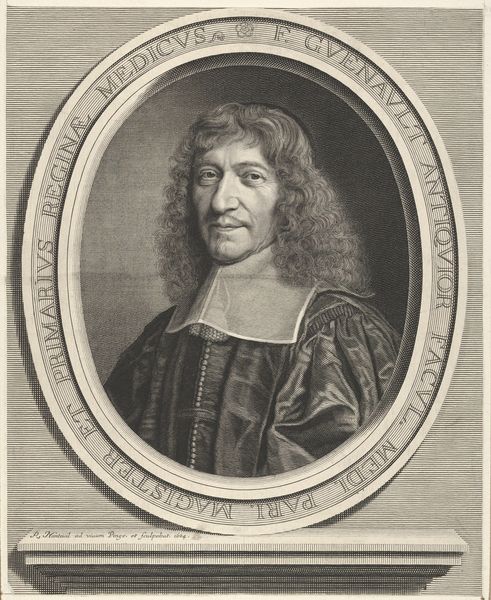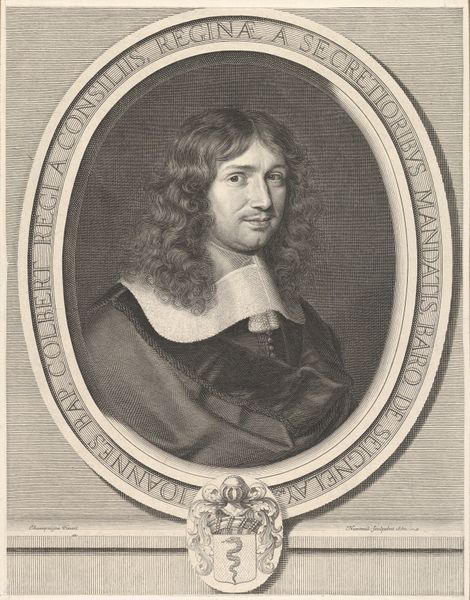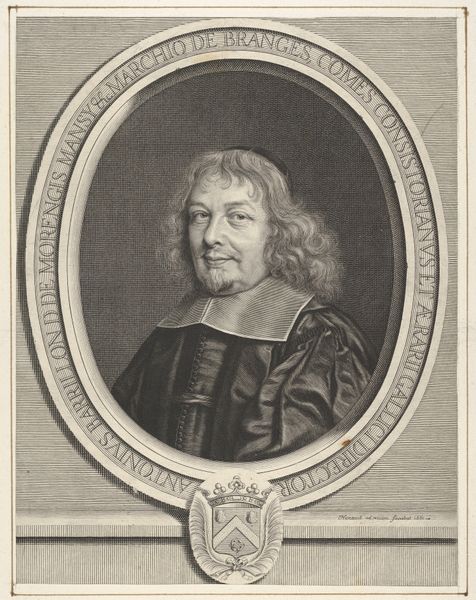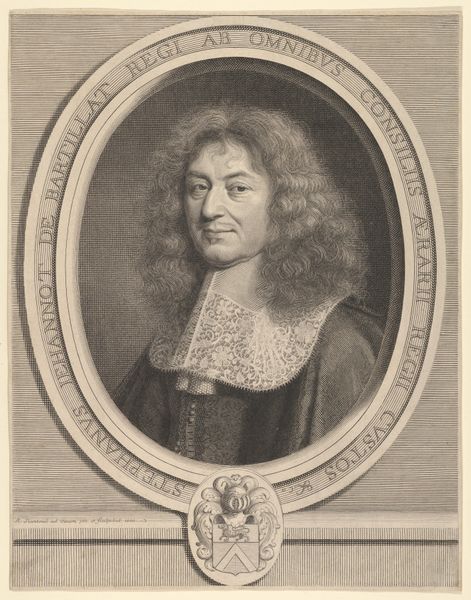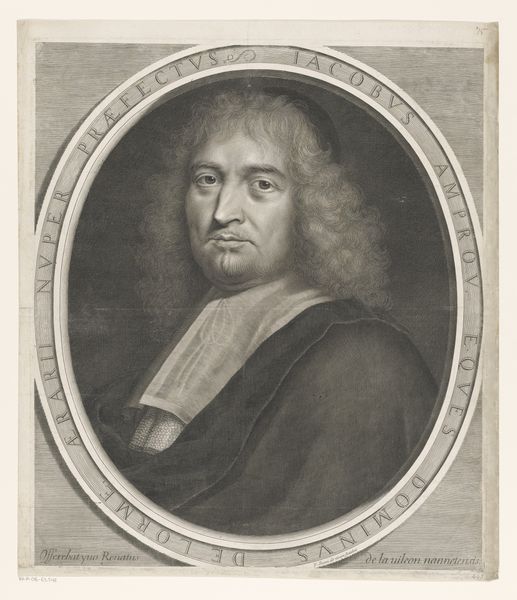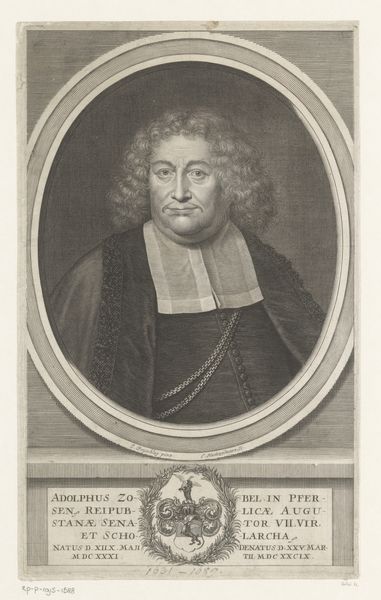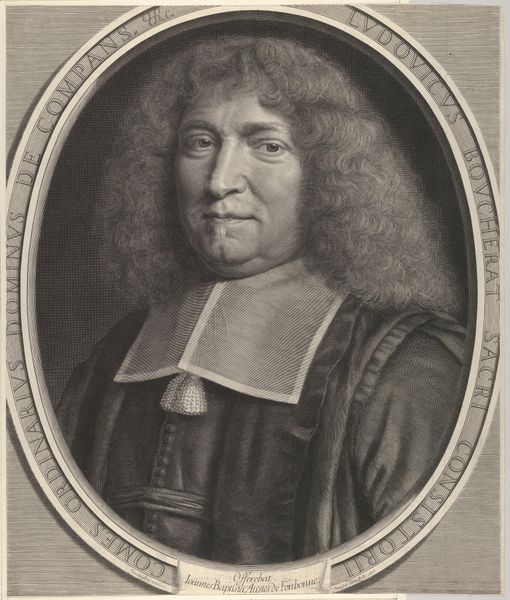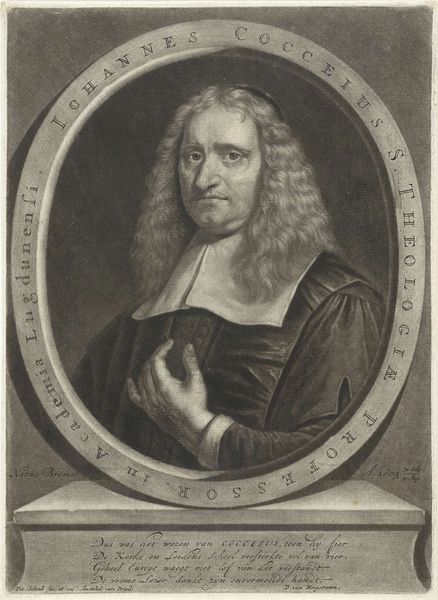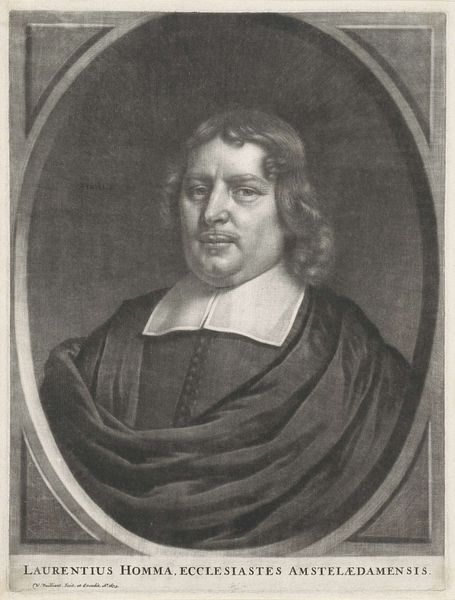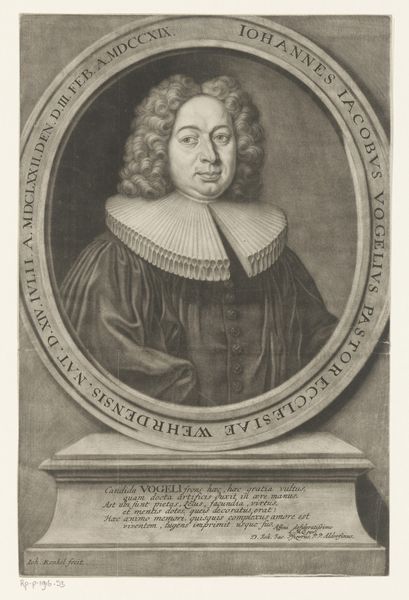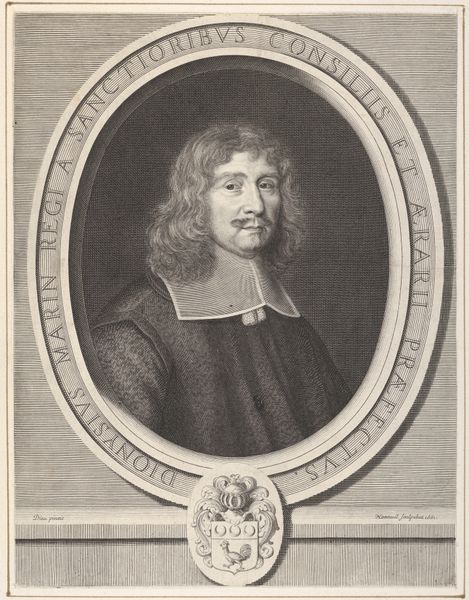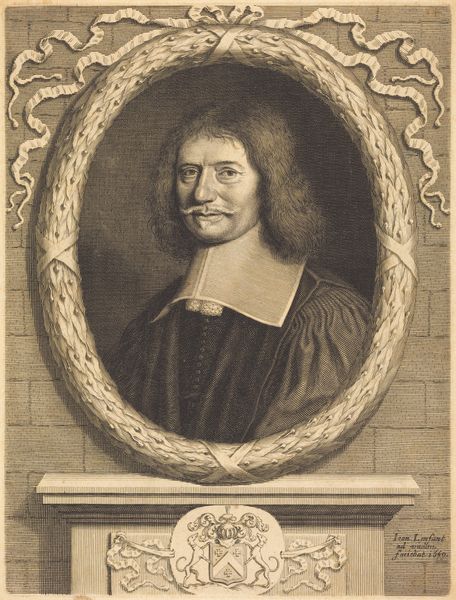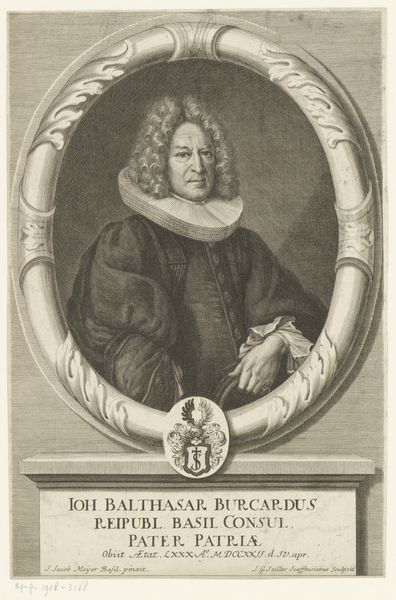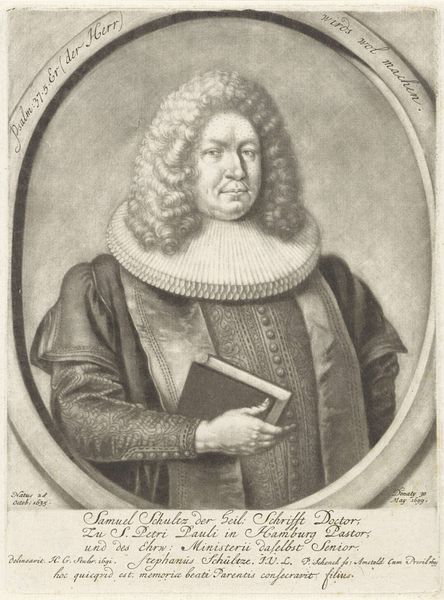
engraving
#
portrait
#
baroque
#
history-painting
#
academic-art
#
engraving
Dimensions: height 507 mm, width 431 mm
Copyright: Rijks Museum: Open Domain
This is a portrait of Louis Boucherat by Jean Lenfant, made in the 17th century, using engraving. Engraving is an intaglio printmaking process, meaning the image is incised into a plate, and then filled with ink for printing. Look closely and you’ll notice a network of fine lines; the image is entirely constructed through this intensive labor. The engraver would have used a tool called a burin to manually carve these lines into a copper plate. Engraving was a crucial technique for disseminating images at this time, before the advent of photography, playing a key role in shaping public opinion and cultural trends. A portrait like this one wasn't just a picture, but a statement about the sitter's status. The very act of commissioning an engraving speaks volumes about Boucherat's position in society, and the value placed on his image. By focusing on its materiality and production, we can see how this print extends beyond mere representation. It gives us insight into the technologies, social dynamics, and economies of the period.
Comments
No comments
Be the first to comment and join the conversation on the ultimate creative platform.
